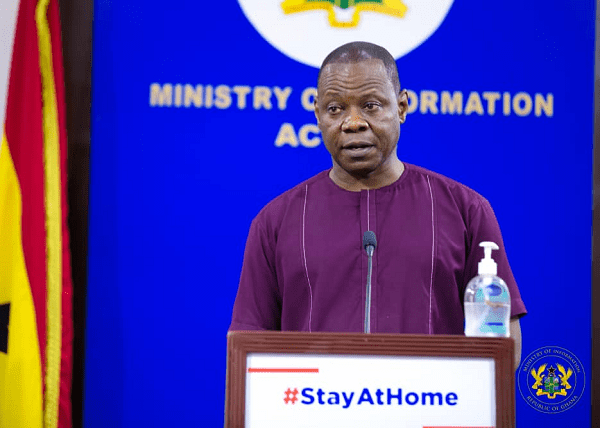
GHS mainstreams COVID-19 management into service delivery
The Ghana Health Service (GHS) has decided to mainstream COVID-19 management into its service delivery value chain across the country as part of its agenda for the year.
This means the management of the disease will no longer be done solely by designated facilities but in almost every health facility under the GHS.
Advertisement
Speaking with the Daily Graphic in Accra yesterday, the Director-General of the GHS, Dr Patrick Kuma-Aboagye, said the mainstreaming would ensure that all health facilities had a role to play in the management of COVID-19.
The measure, he explained, was to enhance COVID-19 response and help improve health outcomes across the board.
“This year, we are going to focus on ensuring that we mainstream the management of COVID-19. This means that all our peripheral facilities from all levels will have a role to play in case management, so that we slowly move out of this emergency phase,” he said.
Dr Kuma-Aboagye said the measure was not just for COVID-19 response but formed part of delivering on the Universal Health Coverage (UHC).
“As such, we are restructuring our sub-district healthcare system to make it more efficient, so that we can have model health centres running 24 hours daily to take up majority of the primary health cases to help decongest our hospitals,” he said.
He acknowledged the fact that because the quality of care provided in health facilities at the grass-root and community levels was often not the best, people with minor health issues that could be handled at the lower facility levels went straight to hospitals, causing congestion, hence the restructuring and revamping of services along the value chain.
That was to ensure that quality and a wide range of healthcare services were much closer to the people to help decongest hospitals, Dr Kuma-Aboagye said.
Technology
“We also want to take a critical look at telemedicine using digital approaches to provide access to quality care. If there is anything that we can learn from COVID-19, then it is exploring innovative ways of working and reaching the public with healthcare services to ensure quality care for all,” he noted.
He also mentioned staff welfare, capacity building and motivation as priority areas for this year, especially because healthcare workers had been overstretched due to COVID-19.
He expressed gratitude to all healthcare workers for their enormous and relentless contributions, while thanking the media for supporting the sector with the needed advocacy that had contributed to the strides made.
Control
Giving an update on the current COVID-19 situation, Dr Kuma-Aboagye said Ghana was recording a decline in infections and active cases, a development which, he said, could be a signal that the fourth wave was under control.
“We are currently in our fourth wave and we hope that this decline is signaling the end of that wave or the start of the process to take us out of it,” he said.
The director-general attributed the decline to the national vaccination drive and public health protocols instituted.
“We know that the public health measures put in place and the fact that over 50 per cent of the people in the major hotspot area, Greater Accra, have had at least a shot of vaccine, meaning that they have the potential of clearing the virus quicker, resulting in the decline in active and new cases,” he said.
He said the active cases had dropped from 13,000 to 9,200 as of yesterday.
He described the fourth wave as the “tallest and steepest wave” the country had experienced.
Get vaccinated
Dr Kuma-Aboagye reiterated his appeal to the public to disregard all myths and misconceptions around COVID-19 vaccines and get vaccinated to help safeguard public health.
“Vaccination is the most effective way to protect against the COVID-19 pandemic. The vaccines prevent severe illnesses, hospitalisation and deaths; the vaccines are safe, effective and free,” he said.
Dr Kuma-Aboagye said COVID-19 vaccines boosted the immune system to fight the disease better and helped to avert severe illness and death.



